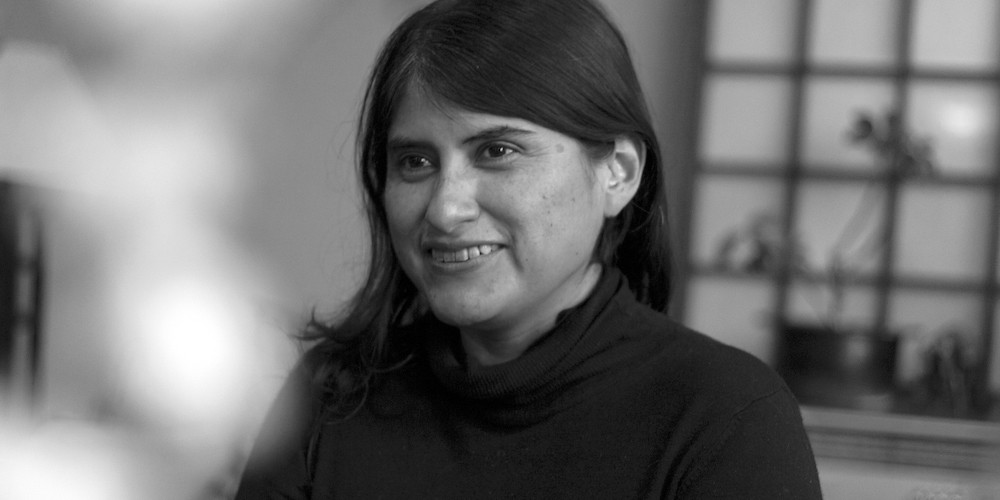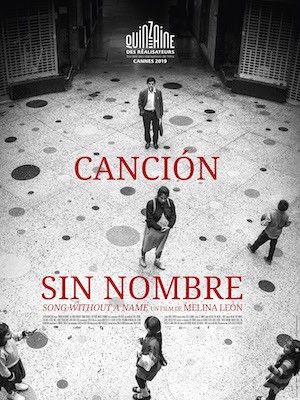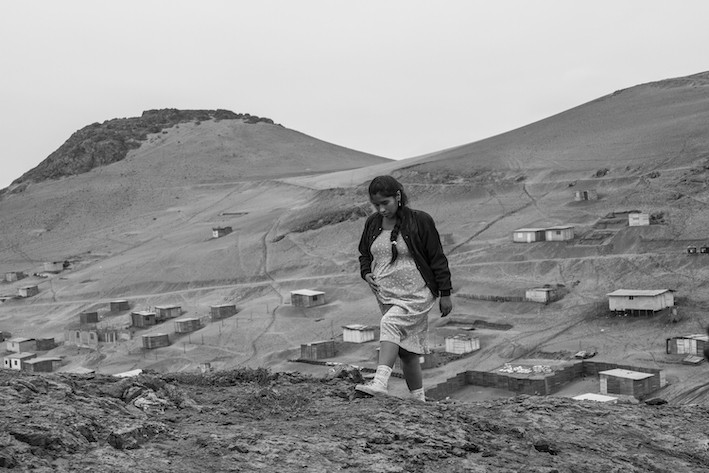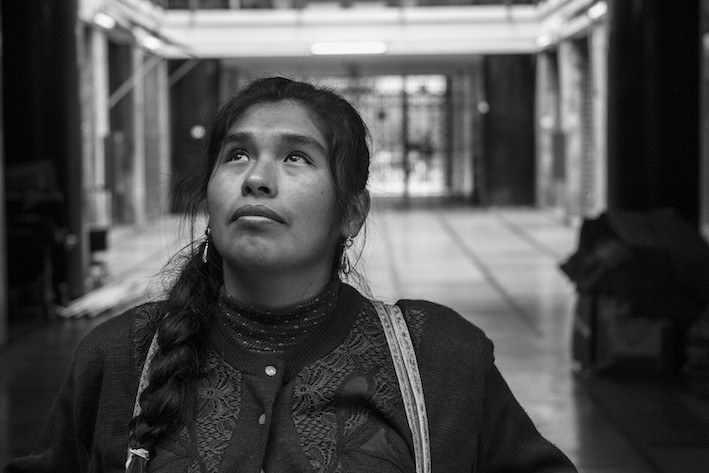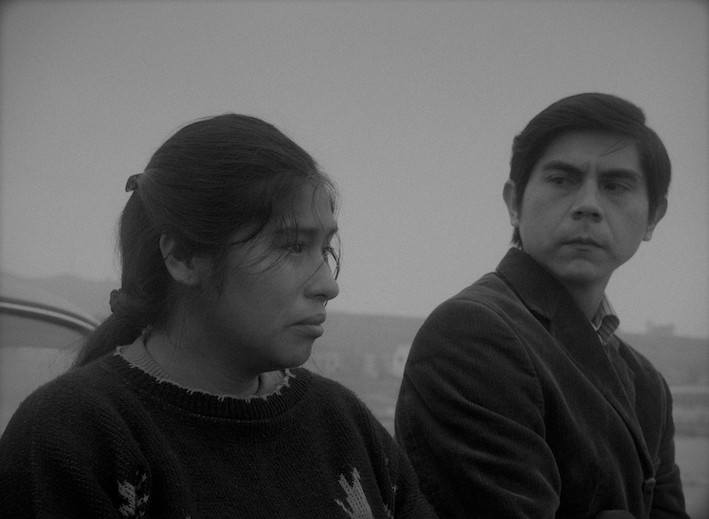On A Global Scale: A Peruvian Tale
On A Global Scale is a bi-weekly series about international co-productions by Columbia filmmakers.
Welcome to another edition of On A Global Scale. This series celebrates the international spirit of the Columbia University film program and the incredible global collaborations coming out of it.
One Columbia filmmaker who celebrated a big arrival on the international festival circuit last year was Peruvian writer and director Melina León ’08. Her debut feature film Song Without A Name premiered at the Cannes Film Festival in the Director’s Fortnight category, the first in the festival’s history to be directed by a female Peruvian filmmaker.
Song Without A Name tells the story of Georgina whose newborn daughter is stolen at a fake health clinic. Her desperate search for the child leads her to the headquarters of a major newspaper, where she meets a lonely journalist who takes on the investigation.
The film has screened in more than eighty international film festivals, receiving more than thirty awards and recognitions from different parts of the world including the CineVision Award for Best Film By An Emerging Filmmaker at the Munich Film Festival and the Public Award at FICUNAM International Cinema Festival in Mexico City in 2020. Due to the current COVID-19 pandemic, the film will not have its theatrical release as planned.
However, the incredible success of the black and white film set in Peru, at the height of the political crisis of the 1980’s, is only the conclusion of a years long journey for León in attempting to get her film made and her message out in the world. When we spoke, León circled back to when it all began. “I go from crisis to crisis,” León expressed jokingly. She graduated from Columbia University in 2009 as a Directing concentrate at the height of the financial crisis. “I was lucky I got a job, but the situation was not very good in the US. I was working as an editor. Somebody I had met at Columbia hired me for a tiny company that was doing livestream shows. It was nothing interesting but it was a job.” Nevertheless, the job allowed León to stay in the country and begin work on her passion project—Song Without A Name or Canción Sin Nombre, as the film is called in her native tongue, Spanish.
“As I was preparing to make this film, I got interest from a production company that had worked with Michael Haneke. They were located in the same street where my job was. So I thought naively, this meant something. Their way of working was to convince a number of recent graduates to sign deals with them and then they’d see which project to move forward with while I was under the impression mine was one of only a few projects they developed. I spent almost two years thinking I could make it work with this company. It would’ve been better to start doing my own thing, but you live and learn.” Eventually, León did decide to break off on her own. She started her own production company in Peru in order to apply for government funding and co-productions there. Initially intending to manage it from New York City, she soon discovered difficulties that led her to rethink this plan. “I realized I was not getting the government funding and the issue wasn’t the project. People there advised me: ‘If you were here, we think we might have better chances.’ That’s exactly what happened. I moved home and I finally got the funding. There were still paper trails at that time in Peru, nothing was happening online, and you needed to physically drop off prints and documents at different places all the time.” With a clear vision, León also served as the main producer on Song Without A Name, adding an additional responsibility to the writing and directing she was already juggling.
That’s also when the cultures León was juggling began to clash, too. After returning home from New York, the different approaches on set quickly became apparent. “In the New York student environment, a lot of people have the luxury of helping you out. It’s good for them to get experience and make connections. In Peru, because the economy is worse, people need to get paid all the time. There are also less people working in film.”
With her film, León sought to untangle the local culture of the indegineous people from the urban one, aiming to be as accurate as possible, which wasn’t always easy. One of the most memorable moments which, according to León, could only happen in Peru, occurred during a shoot in the outskirts of Lima. “The actors were staying in a hotel near the location and the driver didn’t know how to get to where we were. We wanted to shoot at dawn and the fog was so intense, the driver couldn’t see anything. In the place we were shooting, people don’t have GPS,” León recalls the stressful situation. “In that scene, Georgina [the protagonist] has her hair loose in one shot when they are going up the mountain in the middle of the fog. She was not supposed to have that, but we said: ‘Go, we don’t have time to do your hair.’” What might appear like a “small” issue to many Western viewers is actually of immense importance in a Peruvian cultural context. “In the indigenous tradition before going out it’s the most common thing that women tie their hair. At this moment I thought: ‘Oh, this is not precise enough.’”
This strong urge to represent her world as authentically as possible stems from León’s urge to explore her own culture through filmmaking. “Sadly, for people like me who grow up in the city, the indigenous culture has either been forgotten or somehow not spoken about like it’s ours. It is being talked about like it’s somebody else's culture. It’s not like we are not indigenous descendants but we have been denied this identity because it’s not prestigious. Talking about this culture in my film is a way for me to approach it.” Hence, the film is also an exploration of León’s own culture and her struggles between her own “modern” raising and the traditional indigenous influences within the country—a conflict of urban versus rural ways of life.
The result is a film that invites audiences into a world they’ve likely never seen before. It’s vivid and drawn out, guided by a filmmaker who is intimately familiar with this world.
To León, this relatability has a lot to do with the casting choices for the leading roles. “If you place them in a crowd, is there something particular drawing your eye to them? This is what happened to me when I saw Pamela [Mendoza]. You look at her and something moves you. This innocent joyfulness. People relate to that. They relate to hope and joy–she’s not destined to be a person who suffers, not one we want to see as a victim. All this happened to her like it could happen to everyone. But it begins with joy. That’s why we chose the opening scene to be a celebration in spite of the poverty she lives in. There is a cultural beauty, a dance, a celebration going on despite the circumstances. Then the tragedy arrives, but we’ve seen her in those better days and want her to be able to ultimately return to that.”
The casting for the role of the journalist went a little differently. Ten years earlier, León had already collaborated with the actor Tommy Párraga on her Columbia short Lily’s Paradise (El Paraíso de Lili), another film set in 1980’s Peru. The decision to cast him was based on this prior experience as León declares: “It’s not like he was being very successful as an actor, so I couldn’t see him in many movies and say, ‘Oh, he’s done well in this or that.’ And that’s not because he was a bad actor but because he’s not white and our industry can be very racist. They tend to give big parts to white people, sadly, in this country where most of us are indigenous descendants. But from the short, I remembered how interesting it was to work with him. I just learned at the festival in Mexico City where we were introducing the film in front of an audience he hadn’t worked as an actor in three years before this film. I’m glad I trusted my gut.”
The cultural oppression depicted in the film is hence very real and even based on the personal experiences of the cast and crew involved. “Pamela was not allowed to learn Quechua because her parents were afraid she was going to develop an accent. And it’s not a ‘cute’ accent. It’s considered a sign of ignorance if you have this accent. But now she’s learning it. She became an anthropologist and it’s only now our society acknowledges the value of indigenous culture. For me, no one told me ‘You can’t learn it,’ but it was never offered to me.”
Language is of great importance to León. “I tried to write the script to Song Without A Name in English because I also had an American co-writer. And I thought it was okay, but when I started writing in my own language, it was so much easier for me. Not just easier, I also started to have more ideas. It shows you there’s a link–it’s not just a tool for expressing a thought. Language generates thought.”
And yet this drive to explore her own culture and identity came out strongest when she spent time away from her home country to study film in New York after having been influenced by traditional American cinema. “Here in Latin America the films of the US are the only films you can watch in movie theatres. It’s sad, but it’s real. We grew up watching American films. I was watching an interview with Sean Baker and I identified with what he said: ‘I went to school thinking I was going to do the next Star Wars and then opened my eyes to what I really like.’ I wasn’t so extreme, I was never dreaming of doing a Star Wars, but during my time in New York I discovered films from all over the world, more independent films and it cleared the path of what I wanted to do and talk about.”
León’s process of making Song Without A Name, her debut feature, has finally come to a conclusion after ten years of intense work. It is a project that overcame many difficulties and was born from her passionate wish to tell this relevant story. But León has little regret that the final took so long. To her, filmmaking is also a journey of self discovery—and that never happens overnight.
Melina León is a Peruvian director based in NYC and Lima. She was the recipient of a 2015 Jerome Foundation Emerging Artist Production Grant to direct this film. Her previous short film El Paraíso de Lili (Lili’s Paradise) is also set in 1980’s Lima. It officially premiered at the prestigious New York Film Festival and was selected at over 20 international film festivals, winning 11 awards, among them Best Latin American short film at the São Paulo International Short Film Festival. León grew up in Lima and moved to New York city in 2003 to study film directing at Columbia University. She currently works internationally as a director, producer, editor and teacher.
